Mid-point EDRi strategy review: impact and adjustments in a changing field
In April 2020, during the early months of the Covid-19 pandemic in Europe, EDRi adopted its first network multi-annual strategy for the years 2020-2024. At the mid-term of the strategy implementation, what have we learned?
Filter resources
-
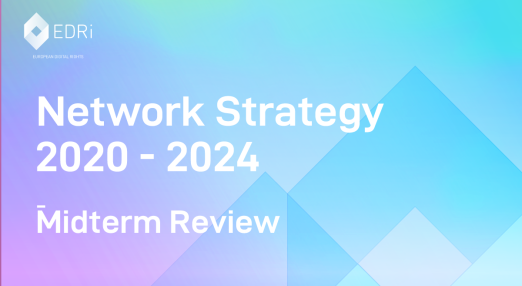
Mid-point EDRi strategy review: impact and adjustments in a changing field
In April 2020, during the early months of the Covid-19 pandemic in Europe, EDRi adopted its first network multi-annual strategy for the years 2020-2024. At the mid-term of the strategy implementation, what have we learned?
Read more
-

“Take it personal, and don´t”: changing the decolonising process and letting ourselves be changed
This blog reviews the decolonising process so far and what we've been upto since our last communication, shared in December last year. It adds detail to how we are organising, shifting, and re-orienting the iterative and complex needs of a decolonising process.
Read more
-

EDRi-gram, 28 September 2022
We celebrate the ruling of the Court of Justice of the European Union that the general storage of data undermines people's right to privacy and data protection. We're also exploring how a community-focused project enables young people to defend their online privacy.
Read more
-

Privacy Defenders: Enabling young people to defend their online privacy
EDRi member Electronic Frontier Norway (EFN) in cooperation with Croatian NGOs NUM and Politiscope will soon finish the implementation of the project Privacy Defenders, supported by the Active Citizen Fund (EEA and Norway). The project aims to build the capacities of young people from a small local community to advocate for and defend their online privacy.
Read more
-
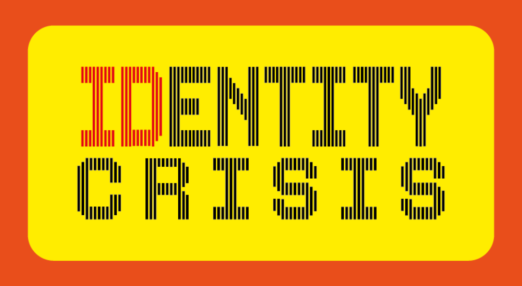
Identity Crisis
Identity systems create and facilitate exclusion, insecurity, and surveillance.
Read more
-

EDRi-gram, 14 September
“What you’re saying is, for me to own a car and to drive, I have to submit that my photo and information are going to be used for policing purposes across the entire EU… Are we all walking around as citizens? Or are we all walking around as suspects?”. The European Commission’s Prüm II proposal fails to put in place vital safeguards designed to protect all of us from state over-reach and authoritarian mass surveillance practices. Check out more in the EDRi-gram.
Read more
-

EDRi-gram, 6 July 2022
“Use of digital technologies is taken as a given, and yet for a variety of reasons almost one-fifth of Czech households do not have internet access and a quarter of adults do not have a smartphone. Regrettably, in Czech media there is not much discussion about this and other challenges of the digital era.” ― Hynek Trojánek, PR coordinator for the Promoting Human Rights in the Digital Era
Read more
-

“You’ll find it on the internet.” How digitalisation impacts the lives of people whose voices often go unheard
As a rule, government and official websites make no allowances for users with special needs. At the same time, even some IT specialists prefer to use paper as an alternative. These were among the findings of a unique piece of research which was part of the Promoting Human Rights in the Digital Era project.
Read more
-
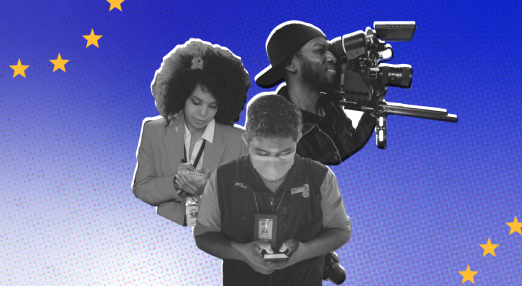
The European Media Freedom Act: a unique opportunity to safeguard Europe’s media and democratic values
Media independence, freedom and plurality are under pressure in the EU. The upcoming European Media Freedom Act (EMFA) is a unique opportunity to protect Europe’s media and, by ensuring a diverse information ecosystem, also safeguarding EU democratic values.
Read more
-
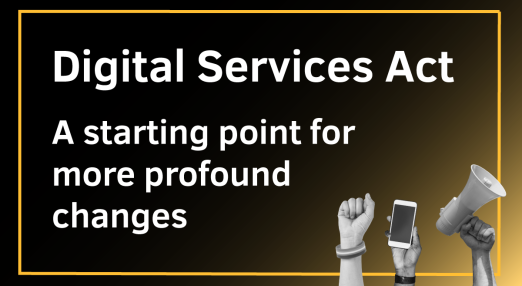
The DSA should pave the way for systemic change
Today, 5 July, is a victorious day for human rights online as we embark on the next stage in our journey – real alternatives to the currently dominant surveillance business model. The European Parliament’s approval of the Digital Services Act (DSA) will bring many opportunities to limit the huge power Big Tech companies like Google, Meta (Facebook) and Amazon have over people and democracies. However, this regulation is only the first step in ensuring people’s rights online are protected, more work is needed for a better internet. Now, it is imperative that we see strong enforcement by regulatory authorities that will ensure the high human rights standards the new rules promise.
Read more
-
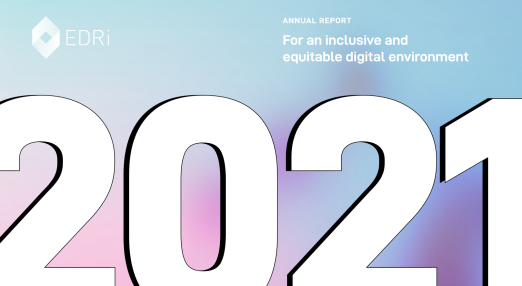
Take a virtual look back with EDRi’s interactive Annual Report: How did the EDRi network protect your digital rights in 2021?
You know privacy matters but not sure what this means in practice? Do you sense much happened in Europe last year to challenge private and state actors abusing their power in the digital age? The pandemic has left you wondering what you can do to ensure technologies work for people? Then check out EDRi’s interactive 2021 Annual Report to better understand the challenges imposed on your digital rights, and how the EDRi network addressed them. Learn and engage with our strong community so we can enjoy an inclusive and equitable digital environment.
Read more
-
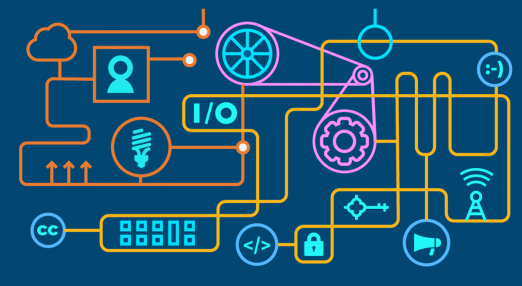
Civil society groups urge EU Parliament to use all its powers to ensure Digital Markets Act enforcement has necessary resources
On June 28, EDRi and 16 civil society organisations urged the European Parliament to focus its attention on the Digital Markets Act (DMA) enforcement.
Read more
